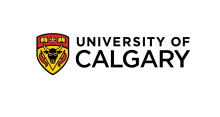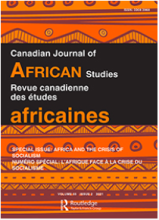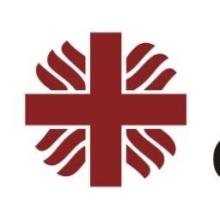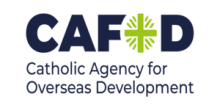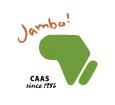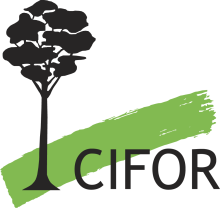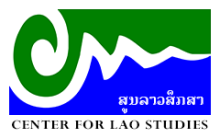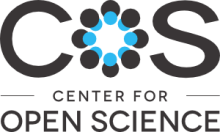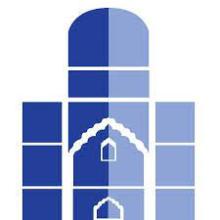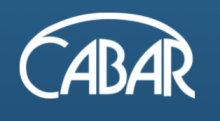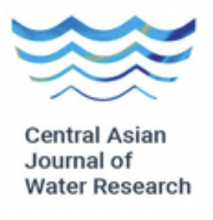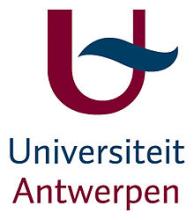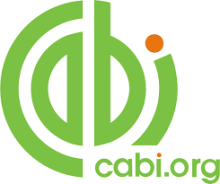A Biblioteca Land Portal inclui recursos de mais de 1.890 provedores de informações nacionais e internacionais. Saiba mais sobre as organizações e instituições que utilizam o Land Portal para partilhar as suas pesquisas, dados e histórias de acesso aberto.
Canadian Agricultural Economics Society
Who We Are
The Canadian Agricultural Economics Society (CAES) is an association comprised of individuals with a professional interest in topics related to the economics of agriculture, food, natural resources, and the environment. CAES members include economists and other social science professionals in universities, government, non-government agencies and the private sector, and undergraduate and graduate students. CAES members include Canadians and others, in Canada and elsewhere.
What We Do
The CAES provides opportunities for professional development, association and networking among individuals making contributions to solving important agricultural, food and resource problems of the day, and in anticipating new challenges and opportunities. The principal activities of the Society include: publishing the Canadian Journal of Agricultural Economics; convening an annual meeting to share research results and to conduct Society affairs; hosting on an annual basis a regional workshop or national conference on topics of interest to members (e.g., agricultural, food, resource policy); sponsoring awards for academic excellence, including the best theses related to agricultural, food, and resource economics at Canadian universities; and maintaining a website and Newsletter designed to facilitate the communication of information, ideas and research results by CAES members and other professionals. Members of the CAES manage the affairs of the Canadian Agricultural Economics and Farm Management Foundation.
Canadian Center of Science and Education
The Canadian Center of Science and Education (CCSE) is a private for-profit organization delivering support and services to educators and researchers in Canada and around the world.
The Canadian Center of Science and Education was established in 2006. In partnership with research institutions, community organizations, enterprises, and foundations, CCSE provides a variety of programs to support and promote education and research development, including educational programs for students, financial support for researchers, international education projects, and scientific publications.
CCSE publishes scholarly journals in a wide range of academic fields, including the social sciences, the humanities, the natural sciences, the biological and medical sciences, education, economics, and management. These journals deliver original, peer-reviewed research from international scholars to a worldwide audience. All our journals are available in electronic form in conjunction with their print editions. All journals are available for free download online.
Canadian Council of Forest Ministers
There has been a long tradition of cooperation between the federal and provincial/territorial governments in forestry matters.
The establishment of the CCFM in 1985 provided an important forum for the respective governments to exchange information, work cooperatively, provide leadership and generate actions on forestry related matters of interests to all Canadians above and beyond the work done by individuals governments.
The primary role of the CCFM is to provide:
- A forum of discussion and exchange of views on forestry-related issues of common interest or with an intergovernmental or international standpoint.
- A vehicle to work cooperatively on common forest and forestry-related issues of Canadian and international concern.
Objectives of the CCFM
- Promote cooperation between governments regarding emerging forest and forestry-related issues of common interest and of intergovernmental or international significance.
- Cooperate in developing and maintaining the scientific information base required to support forest management decision making.
- Demonstrate international leadership on sustainable forest management.
- Promote forest management in Canada.
- Cooperate with other ministerial councils and other instances, as appropriate, to address common issues.
- Share information on issues impacting on the forest sector.
- Provide a framework within which agreements can be signed and implemented on specific areas.
Canadian Institute of Forestry
Established in 1908, the CIF-IFC is the oldest forest society in Canada! The Institute serves as the voice of forest practitioners representing foresters, forest technologists and technicians, ecologists, biologists, educators and many others with a professional interest in forestry.
The Institute is dedicated to:
- Providing national leadership in forestry;
- Promoting competency among forestry professionals; and
- Fostering public awareness of forestry issues.
MISSION, VISION & MOTTO
Vision: To inspire confidence and pride in Canadian forestry - nationally and internationally
Mission: Provide national leadership in forestry, promote competency in forest professionals, and foster public awareness of Canadian and international forestry issues
Motto: Voice of Forest Practitioners
Canadian Institute of Resources Law - University of Calgary
The Canadian Institute of Resources Law (CIRL), a registered charitable organization, is a leading national centre of expertise on energy and environmental policy and law issues relating to Alberta's energy and natural resources. Since its establishment in 1979, the Institute has developed an international reputation for excellence in resources, energy and environmental law, and pursues a three-fold mandate to undertake research, education and publication activities on energy and the environment.
Canadian Journal of African Studies/ La Revue canadienne des études africaines
Journal of the Canadian Association of African Studies (CAAS). Publishes research in English and French about Africa, including anthropology, political science, history, sociology, literature, geography and development.
Canadian Women for Women in Afghanistan
Canadian Women for Women in Afghanistan (CW4WAfghan) is a charity and not-for-profit organization founded in 1998 to advance education and educational opportunities for Afghan women and their families and to educate Canadians about human rights in Afghanistan. Our four main field program areas include: (1) Investments in Basic Education; (2) Community Libraries, Literacy and Books Program; (3) Technology for Education; and, (4) Public Engagement. For a list of the projects that fall within these programs, visit PROGRAMS. CW4WAfghan is a non-religious, non-political, federally registered charity in Canada (Canada Revenue Agency #887718203RR0001). Through our network of members in chapters and regions across Canada, CW4WAfghan strives to raise funds to meet our program objectives. Please click HERE to learn about our chapter network and visit our EVENTS calendar for activities in your region.
Care International
We seek a world of hope, tolerance and social justice, where poverty has been overcome and all people live in dignity and security.
CARE follows a set of Programming Principles in our emergency, rehabilitation and long-term development work. CARE's principles are aligned with those of many other humanitarian agencies, and include:
- Promote empowerment
- Work in partnership with others ·
- Ensure accountability and promote responsibility
- Address discrimination
- Promote the non-violent resolution of conflicts
- Seek sustainable results
Caritas Cambodia
Caritas Cambodia is an official social development arm of the Catholic Church in Cambodia. It has been built on the values of Love, Concern, Justice, Peace Unity, Sharing and brotherhood. It draws inspiration from the Gospel and aims at integral development of people irrespective of race and creed. Hence the objectives of Caritas Cambodia specifically include the following:
To promote and strengthen activities that are aimed at the integral development of communities particularly to help in Sustainable Agriculture, empowerment program, economic program, Welfare program, Vocational Training, comprehensive health program, Home Care program for persons with HIV/AIDS, Centre for Child Mental Health, Blindness prevention program, Relief and Rehabilitation program.
Caritas Ghana
Caritas Ghana is a Charity Organization of the Ghana Catholic Bishops’ Conference (GCBC) and member of the global Caritas Confederation.
Carta Internacional
A Carta Internacional é uma revista da Associação Brasileira de Relações Internacionais, dedicada à publicação de trabalhos científicos da área. Seu objetivo é promover o debate intelectual qualificado a respeito de temáticas fundamentais do meio internacional que, no âmbito da ABRI, se organizam em sete eixos analíticos: Teoria das Relações Internacionais; Instituições Internacionais; Segurança Internacional, Estudos Estratégicos e Política de Defesa; Economia Política Internacional; Análise de Política Externa; História das Relações Internacionais e da Política Externa; Ensino e Pesquisa em Relações Internacionais. O escopo da Revista observa esses eixos analíticos e são muito bem-vindos trabalhos de pesquisadores brasileiros e estrangeiros que tratem de questões e problemas a eles relacionados. A Carta Internacional publica artigos originais e inovadores, consideradas essas áreas temáticas, e é aberta a uma ampla variedade de tradições teóricas e metodológicas. As contribuições que não enfatizem questões, problemas e fenômenos internacionais ou transfronteiriços, definidos como pertencentes à agenda de estudos internacionais, estão fora do escopo da revista.
Catholic Agency For Overseas Development
The Catholic Agency For Overseas Development (CAFOD), previously known as the Catholic Fund for Overseas Development, is the Catholic aid agency for England and Wales. It is an international aid agency working to alleviate poverty and suffering in developing countries. It is funded by the Catholic community in England and Wales, the British Government and the general public by donations.[1]
CAFOD is an agency of the Catholic Bishops' Conference of England and Wales and part of the Caritas International Federation which operates in many countries and territories worldwide. CAFOD is a member of the DEC Disasters Emergency Committee and the British Overseas Aid Group.
CDC Investment works
Our mission is to support the building of businesses throughout Africa and South Asia, to create jobs, and to make a lasting difference to people’s lives in some of the world’s poorest places.
We invest in Africa and South Asia because over 80 percent of the world’s poorest people live in these regions. We focus on investing in countries where the private sector is weak, jobs are scarce, and the investment climate is difficult, but particularly in sectors where growth leads to jobs. These sectors are financial services, infrastructure, health, manufacturing, food and agriculture, construction and real estate, and education.
CEE Bankwatch Network
Our vision is an environmentally, socially and economically just world, built on solidarity, participation and respect for ecological limits. People enjoy fulfilling lives and are aware of and responsible for the consequences of their actions.
Our contribution
To make this vision become reality, we are working to prevent the environmentally and socially harmful impacts of international development finance, and to promote alternative solutions and public participation.
Center for African Area Studies - Kyoto University
The Center for African Area Studies (known as the "Africa Center") is foundation for African studies based on a deep understanding of Africa's natural environment, societies, and cultures that exists for the purpose of clarifying the uniqueness of various regions of Africa and contributing to endogenous development in Africa.
The forerunner of this center was the first African research institute to be established at a national university in Japan and was founded in April of 1986.
In 1996, the original faculty became a part of the Graduate School of Human and Environmental Studies at Kyoto University, and the Center for African Area Studies was established to take over its work.
The main activities of the African Center are (1) promoting interdisciplinary research, (2) hosting extension lectures and public seminars to apply research results for the benefit of society, (3) engaging in research exchanges and international cooperation based on international academic agreements, and (4) providing research information and network building.
The Africa Center, a distinctive institution for African Area Studies based on the fieldwork tradition of Kyoto University, plays a role in promoting both national and international research exchanges and research cooperation.
The Center for African Area Studies (CAAS) publishes African Study Monographs, periodical journal with occasional supplements.
Center for Conflict Management, National University of Rwanda
Description of the Centre
The Centre for Conflict Management (CCM), College of Arts and Social Sciences (CASS), at the University of Rwanda (UR) was created in 1999 with financial support from the United Nations Development Program (UNDP) through its “Trust Fund” for Rwanda. CCM mandate rises from particular challenges raised in the post-genocide context. It is both an answer to a research need to inspire policies and an opportunity to generate native knowledge on the deep causes of conflicts and potential strategies for the development of sustainable peace in our country.
Mission
To address the knowledge gap in the field of genocide, peace and conflict studies, and post-conflict reconstruction and reconciliation through conducting research, teaching as well as community services in the form of policy research.
Vision
To be a centre of excellence for research and training in prevention and positive transformation of conflicts, and be a centre of reference in Rwanda, the Great Lakes Region and beyond.
Departments
The Center has three departments, as follows:
1. Department of Research
2. Department of Academic Affairs (DAA)
3. Department of Community Service
Center for Development Research - University of Bonn
The Center for Development Research (ZEF) is an institute of the University of Bonn, Germany. It started its research activities in 1997. ZEF's researchers aim to find science-based solutions to development-related issues. ZEF’s research departments on Economic and Technological Change, Political and Cultural Change, and Ecology and Natural Resources Management conduct inter- and trans-disciplinary research in, for and with emerging economies and on global issues with its collaborating research partners around the world. ZEF educates doctoral students from all over the world in its Doctoral Studies Program. ZEF is guided by an International Advisory Board. See also our organisational diagram.
Center for International Development - Harvard University
The Center for International Development (CID) at Harvard University is a university-wide center that works to advance the understanding of development challenges and offer viable solutions to problems of global poverty. CID is Harvard’s leading research hub focusing on resolving the dilemmas of public policy associated with generating stable, shared, and sustainable prosperity in developing countries. Our ongoing mission is to apply knowledge to and revolutionize the world of development practice.
CID's primary activities and programs seek to:
- Change the way in which growth strategies are conceived, designed, and implemented
- Reinvent development policy to facilitate countries’ move to higher productivity activities
- Extend markets to the underserved and empower the disenfranchised
- Improve service delivery in education, health, and other social services
- Design institutions, policies and practices that promote sustainable development which meet human needs while conserving the earth’s life support systems
In order to effectively address the world’s most intractable problems, CID seeks to bridge the gaps between disciplines. By convening Harvard’s leading experts and engaging colleagues throughout the world, CID pursues the science of explaining the sources of and remedies for entrenched global poverty, and the political and environmental circumstances that surround it.
Center for International Earth Science Information Network
CIESIN’s mission is to provide access to and enhance the use of information worldwide, advancing understanding of human interactions in the environment and serving the needs of science and public and private decision making.
The Center for International Earth Science Information Network (CIESIN) was established in 1989 as an independent non-governmental organization to provide information that would help scientists, decision-makers, and the public better understand the changing relationship between human beings and the environment. In 1998, CIESIN became a center within the Columbia University Earth Institute. From its offices at Columbia’s Lamont-Doherty Earth Observatory campus in Palisades, New York, CIESIN continues to focus on applying state-of-the-art information technology to pressing interdisciplinary data, information, and research problems related to human interactions in the environment.
CIESIN has a diverse and multi-disciplinary staff, including experts in:
- Computer science
- Information and library sciences
- Demography and public health
- Political science and international affairs
- History
- Urban affairs
- Natural resource management and ecology
CIESIN staff are proficient in:
- Software development
- Web and media design
- Systems integration
- Geographic information systems (GIS)
- Remote sensing
- Digital archiving
- Metadata and information management
- Database design
- Interdisciplinary global environmental change research
CIESIN was one of the first organizations involved in developing and providing interactive data access and mapping tools via the Internet. Given the great diversity of scientific data and information resources now available, CIESIN continues to implement innovative approaches to data identification, access, visualization, and analysis across distributed data systems. This includes efforts to develop global and regional information systems, create innovative decision-support tools, and provide training and technical support services.
The careful integration of natural and social science data and information is increasingly recognized as vital to scientific research and societal decision making related to a wide range of pressing environmental issues. CIESIN continues to pursue new initiatives in this area and to build strong partnerships with national and international organizations in areas such as biodiversity, environment and security, environmental sustainability, population-environment research, global mapping and database development, remote-sensing applications, and the human dimensions of global environmental change.
CIESIN supports both the research and teaching missions of Columbia University. Its innovative application of information technology and ability to support operational data management services over the Internet, serve as a valuable complement to traditional University-based research and education in the natural and social sciences and to professional disciplines such as public policy and public health. In addition, as manager of the University’s GIS site license, CIESIN staff holds regular GIS training sessions for students and scientists throughout the University. CIESIN staff also teach in a number of departments at Columbia.
Center for International Forestry Research
The Center for International Forestry Research (CIFOR) is a non-profit, scientific facility that conducts research on the most pressing challenges of forest and landscapes management around the world. With our global, multidisciplinary approach, we aim to improve human well-being, protect the environment, and increase equity. To do so, we help policymakers, practitioners and communities make decisions based on solid science about how they use and manage their forests and landscapes.
Capacity building, collaboration and partnerships are essential to finding and implementing innovative solutions to the challenges that the globe faces. We are proud to work with local and international partners. We are a member of the CGIAR Consortium and lead the CGIAR Research Program on Forests, Trees and Agroforestry.
Our headquarters are in Bogor, Indonesia. We have offices in 8 countries across Asia, Latin America and Africa, and we work in more than 30 countries. Contact us for more information.
Center for Lao Studies
The Center for Lao Studies is a unique organization that serves both as an academic and a resource center for scholars, the general public, and persons of Lao heritage around the world. Our mission is to advance knowledge and engagement in the field of Lao Studies through research, education and information sharing. Ourvision is to be an institution that leads and excels in the pursuit of knowledge in the field of Lao Studies. At the Center for Lao Studies, we provide an opportunity for all to use our resources, participate in our programs, and to be educated and informed on all issues pertaining to Lao Studies.
The Center for Lao Studies, a 501(c)(3) public benefit corporation, was formed in 2006 as a result of the First International Conference on Lao Studies. CLS was created in response to a void in Lao Studies at the time; in university settings, Lao Studies tended to fall under the umbrella of bigger fields of study and under various administrative structures, such as Centers for Southeast Asian Studies or Centers for Asian Studies. Lao Studies has rarely if ever been the main focus of these fields —Lao specialist faculty is almost nonexistent, Lao language is not taught, and research and publications on Lao-related topics are rare. The Center for Lao Studies has been committed to filling this void by working with academic institutions and community organizations around the world to initiate exceptional programs.
What makes the Center for Lao Studies stand out is our devotion to exclusively developing and promoting the field of Lao Studies. We achieve this through four main objectives:
- Promote Lao Studies in Academia through the International Conference on Lao Studies and Summer Study Abroad in Laos Programs;
- Collaboration between Academia and the Community established through the Lao Oral History Archive, cosponsoring of the International Lao New Year Festival, and through partnerships with institutions, universities and non profit organizations in the U.S. and abroad;
- Promote Research and Publication of the peer‐reviewed Journal of Lao Studies, manuscripts from the International Conferences on Lao Studies, and other scholarly publications that advance and preserve the languages and cultures of the indigenous peoples of Laos; and
- Serve as a Resource Center for scholars, students, community members and the public on all things Lao.
Lao Studies encompasses the study of all Lao disciplines related to and representing the five major groups:
- All ethno-linguistic groups of Laos (e.g. Mon-Khmer, Hmong-Mien, Lao-Tai);
- Lao Isan and other ethnic Lao groups in Thailand (e.g. Lao Song, Phuan, Phu Tai);
- Ethnic Lao living in Cambodia;
- Cross-border ethnic groups in Thailand, Vietnam, China, Burma and Cambodia (e.g. Akha, Hmong/Miao, Khmu, Iu-Mien, Lao Phuan, Tai Leu, Tai Dam, Tai Daeng, Shan); and
- Overseas Lao (e.g. Lao American, Lao French).
At the Center for Lao Studies, we are passionate about elevating discourse on Lao Studies to that on par with other regional studies departments, and are proud of our accomplishments in creating several one-of-a-kind programs. Our members and volunteers around the world have been crucial to our success, and we invite you to join our community in support of expanding awareness of our programs and increasing our impact in the field. Thank you for visiting us – we hope you will take advantage of all the Center for Lao Studies has to offer. Kop Chai!
Download CLS Brochure (pdf)
Center for Open Science
Our mission is to increase openness, integrity, and reproducibility of research.
These are core values of scholarship and practicing them is presumed to increase the efficiency of acquiring knowledge.
For COS to achieve our mission, we must drive change in the culture and incentives that drive researchers’ behavior, the infrastructure that supports their research, and the business models that dominate scholarly communication.
This culture change requires simultaneous movement by funders, institutions, researchers, and service providers across national and disciplinary boundaries. Despite this, the vision is achievable because openness, integrity, and reproducibility are shared values, the technological capacity is available, and alternative sustainable business models exist.
COS's philosophy and motivation is summarized in its strategic plan and in scholarly articles outlining a vision of scientific utopia for research communication and research practices.
Because of our generous funders and outstanding partners, we are able to produce entirely free and open-source products and services. Use the header above to explore the team, services, and communities that make COS possible and productive.
Central Asia-Caucasus Institute and the Silk Road Studies Program
The Central Asia-Caucasus Institute and the Silk Road Studies Program constitute a joint Transatlantic Research and Policy Center. The Center is independent and privately funded, and has offices in Washington, D.C., and Stockholm, Sweden. The Center is affiliated with the American Foreign Policy Council, and with the Stockholm-based Institute for Security and Development Policy. It is the first Center of its kind in both Europe and North America, and is firmly established as a leading focus of research and policy worldwide, serving a large and diverse community of analysts, scholars, policy-watchers, business leaders, journalists, and students.
The joint Center strives to promote study and policy-related work on the region through five main channels: Impartial research; publications and dissemination; forums and conferences; teaching; and acting as a "switchboard" for knowledge and information.
Central Asian Bureau for Analytical Reporting
Central Asian Bureau for Analytical Reporting (CABAR.asia) is a regional analytical, informational and educational platform for Central Asia. Its mission is to develop expert and journalistic analytics, provide training on new media, and provide analytical support for broad social processes in the countries of the region.
This mission is implemented through the following areas:
- Training for young analysts and journalists;
- The development of new genres of journalism, support for independent media, bloggers, personal media;
- Mentoring support for graduates of IWPR and CABAR.asia trainings;
- Production of analytical materials;
- Conducting dialogue events at the country and regional levels;
- Strengthening professional ties between specialists in the region;
- Analysis of current issues in the countries of Central Asia;
- Informing local and foreign audiences about what is happening in the region.
CABAR.asia operates under the IWPR Central Asia Office. The international non-governmental organization Institute for War and Peace Reporting (IWPR) has been successfully implementing various programs in this region for 20 years.
Among representatives of the media, civil society and government bodies of Kazakhstan, Kyrgyzstan, Tajikistan, Turkmenistan and Uzbekistan, IWPR is best known for its educational programs, dialogue platforms and analytical articles about the region, which are published in English and Russian on the iwpr.net website (https://iwpr.net/global-voices). Since the end of 2014 in Central Asia, IWPR has been focused on developing the direction of analytics in the Central Asian region through its analytical platform CABAR.asia.
Component Information:
Analytical materials – CABAR.asia regularly analyzes various problems and trends in the open spaces of the Central Asian region that appear on the platform’s website in the form of analytical articles, journalistic materials, expert comments, interviews, data materials, journalistic investigations, as well as long reads and extended analytical publications – policy briefs. These materials deal with topical issues that are of interest to a wide audience, as well as various trends and narrow-profile topics that sophisticated readers need to carefully monitor both individual countries of Central Asia and the region as a whole.
The authors of these materials are both experienced and well-known experts in Central Asian countries, journalists, recognized masters of the analytical genre, as well as young, but smart, inquisitive and ambitious graduates of educational programs in the direction of “analytics” and “analytical journalism”.
Central Asian Journal of Water Research
CAJWR seeks to reach all scientists focusing on water and environmental-related research in Central Asia and the wider Eurasian region and familiarize them with each other’s achievements, not limiting its range to the national audience. It aims at strengthening the existing networks to support creation of the regional scientific community with the goal of developing scientific research.
Centre d’étude de la région des Grands Lacs d’Afrique
Le Centre regroupe les chercheurs de l’Institut de politique et de gestion du développement (IOB) qui orientent tout ou une grande partie de leur recherche sur la région des grands lacs. Le Centre privilégie l’étude de développements contemporains dans les domaines politique, économique et social. Il publie chaque année un Annuaire. La documentation extensive du Centre est incorporée dans la bibliothèque de l’IOB.
Centre européen de gestion des politiques de développement
ECDPM is a leading independent think tank that wants to make policies in Europe and Africa work for inclusive and sustainable development.
We believe good policies are extremely powerful. They can tackle society’s biggest problems at the root, lay a foundation for change, and play a crucial part in making the global development agenda a reality for all. That is why we want to help institutions and governments across Europe and Africa create policies that work.
Our independent policy experts contribute sharp analysis, thorough research and fresh ideas. But making policies work requires stepping off the sidelines too. It means working closely with the people who create, implement or are impacted by policies. We bring different groups around the table, smooth the way for debate and make sure everyone’s voice is heard. We provide advice and training and design practical solutions together.
We have over thirty years of experience in development policy and international cooperation and know the African and European institutions inside out. Our focus is on EU foreign policy and European and African policies related to conflict, migration, governance, food security, regional integration, business, finance and trade.
Our partners include officials from ministries and institutions, international organisations, think tanks, academia and social and economic actors from Africa, Europe and beyond.
Centre for Agriculture and Bioscience International
CABI (Centre for Agriculture and Biosciences International) is an international not-for-profit organization that improves people’s lives worldwide by providing information and applying scientific expertise to solve problems in agriculture and the environment.
Our approach involves putting information, skills and tools into people's hands. CABI's 48 member countries guide and influence our work which is delivered by scientific staff based in our global network of centres.
CABI's mission is to improve people's lives worldwide by providing information and applying expertise to solve problems in agriculture and the environment.
We achieve our mission by:
- Creating, managing, curating and disseminating information
- Putting know-how in people's hands
- Improving food security through climate smart agriculture and good agricultural practices
- Helping farmers to trade more of what they sow
- Supporting farmers by increasing their capacity to grow better quality crops, and fight pests and diseases
- Bringing science from the lab to the field
- Protecting livelihoods and biodiversity from invasive species and other threats
- Combating threats to agriculture and the environment
We are committed to playing our part in helping the world reach Sustainable Development Goals. Here we outline areas of focus where we believe we can make significant contributions to improving lives across the globe.
Centre for Basic Research
About
Centre for Basic Research (CBR) is a Non-Governmental Organization, (NGO), established in 1987 and a member institute of the Council for the Development of Social Science Research in Africa (CODESRIA).
CBR's mission is to spearhead the generation and dissemination of knowledge by conducting research of social, economic and political significance to Uganda in particular and Africa in general, so as to influence policy, raise consciousness and improve the quality of life. In this way CBR has also nurtured researchers in Uganda and elsewhere.
Vision
A centre of excellence spearheading the generation and dissemination of knowledge in collaboration with like-minded actors for sustainable development
Mission
To generate and disseminate knowledge by conducting basic and applied research of social, economic and political significance to Uganda in particular and Africa in general, so as to influence policy, raise consciousness and improve the quality of life.



